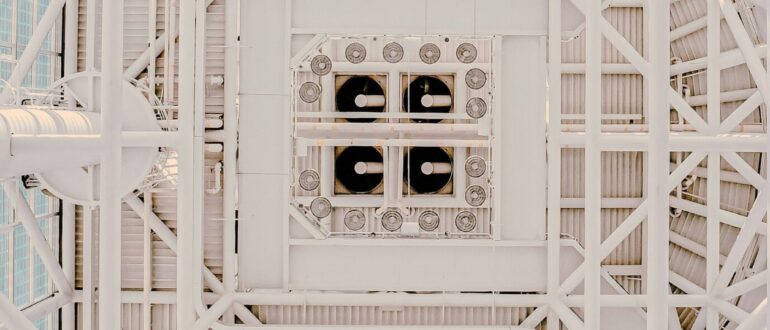Factors Influencing AC Replacement Costs
When considering the replacement of an air conditioning in Dubai, several factors significantly influence the overall costs. Understanding these variables can help homeowners budget more effectively for this crucial home upgrade.
First and foremost, the size and type of the AC unit required play a pivotal role in determining replacement costs. The size must be appropriate for the area it will cool; an undersized unit may struggle to maintain comfortable temperatures, while an oversized unit will operate inefficiently. Assessing home square footage, insulation quality, and local climate conditions are essential in selecting the right unit size and type. Options range from window units to central systems, each varying in price and installation complexity.
Moreover, the brand and efficiency ratings of the air conditioning unit also affect costs. Premium brands often offer enhanced reliability and energy efficiency, but they come at a higher initial price. Investment in a unit with a higher Seasonal Energy Efficiency Ratio (SEER) can lead to savings on energy bills in the long run, indirectly impacting overall costs.
Installation complexities not only hinge on the unit type but also the specifics of the building’s infrastructure. In some cases, existing ductwork may need modification or replacement, which can increase labor costs. Hiring skilled professionals familiar with local building codes and regulations is vital, as non-compliance can lead to fines or extra expenses.
Furthermore, the implications of building codes and permits in Dubai should not be overlooked. Specific regulations may dictate the types of units permissible in certain areas, and acquiring the necessary permits can incur additional costs. Homeowners must consider these potential expenses when planning for an AC replacement.
Average Cost of AC Unit Replacement in Dubai
When considering the replacement of an air conditioning (AC) unit in Dubai, it’s essential for homeowners to understand the various types of systems available and their associated costs. The principal options include split systems, central AC units, and ductless mini-splits, each presenting unique pricing structures that influence overall expenses. A split system, commonly used in residential spaces, typically ranges from AED 3,000 to AED 10,000, depending on the capacity and brand. Installation costs for these units can add an additional AED 1,000 to AED 2,500, depending on the complexity of the setup.
Central AC units, designed for larger spaces, usually incur higher costs due to their extensive installation requirements. The average price for a central AC unit in Dubai can vary between AED 15,000 and AED 30,000, taking into account factors such as unit capacity and brand reputation. Installation, which is more labor-intensive, may range from AED 3,000 to AED 6,000, reflecting the complexity of ductwork and system integration needed to ensure optimal efficiency.
Ductless mini-splits offer a versatile option, with prices that typically range from AED 8,000 to AED 20,000. These systems are particularly advantageous for homes without existing ductwork. Installation fees for ductless systems also sit between AED 1,500 and AED 3,500, allowing homeowners flexibility in terms of configurations and zoning capabilities.
In the competitive Dubai market, pricing may vary based on factors such as seasonality, demand, and supplier pricing. Therefore, it is prudent for homeowners to research and obtain several quotes from reliable service providers. Understanding these average costs is crucial for budgeting, enabling homeowners to invest in a solution that best meets their comfort and efficiency needs while navigating the local HVAC landscape.
Tips for Reducing AC Replacement Costs
Replacing an air conditioning in Dubai can be a significant financial commitment for homeowners. However, there are several practical strategies to help minimize these costs. One effective approach is to consider seasonal timing. Purchasing and installing a new air conditioning unit during the off-peak seasons, such as autumn or spring, can lead to substantial savings. During these times, demand for HVAC services tends to be lower, which may prompt suppliers to offer discounts and promotions on units and installation services.
Another essential factor in reducing AC replacement costs is the regular maintenance of existing units. Homeowners should proactively maintain their air conditioning systems through routine check-ups and necessary repairs. By scheduling annual service, it is possible to identify issues early, extend the lifespan of the current system, and delay the need for a costly replacement. Regular maintenance not only ensures optimal performance but also enhances energy efficiency, ultimately translating to reduced utility bills.
Maximizing energy efficiency in newly installed air conditioning units also plays a crucial role in long-term cost savings. Homeowners are encouraged to select energy-efficient models, as these units often come with the benefit of lower operational costs. Furthermore, ensuring proper insulation in the home can minimize the burden on the AC unit, leading to more savings on electricity bills over time.
Additionally, it is wise to investigate potential financial assistance or rebates available in Dubai. Many local governments and utility companies offer programs aimed at promoting energy efficiency, which may include rebates for the purchase of energy-efficient air conditioning systems. Utilizing these resources can significantly alleviate the financial burden associated with replacing an AC unit, making it more feasible for homeowners to invest in a quality system that meets their needs.




Comments 0